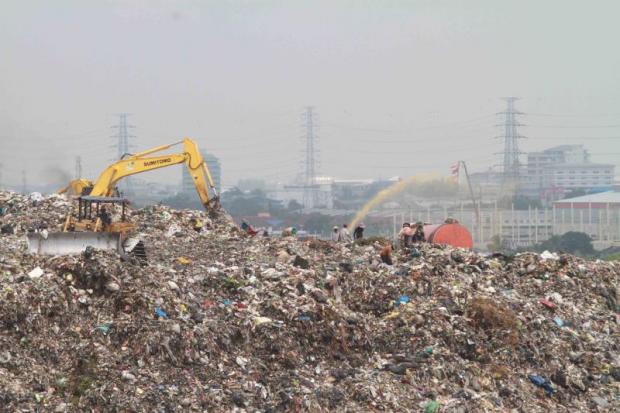
The country's capacity for industrial and toxic waste management will rise to 37.6 million tonnes this year, up from 25.8 million last year, as more treatment factories begin operatations, the Industry Ministry's Department of Industrial Works predicts.
The government's plan to set up industrial waste management factories in 15 provinces is in line with its investment promotion, according to the five-year waste management plan for 2015-19, said deputy director-general Jullapong Thaveesri.
"The Industry Ministry expects 37.6 million tonnes of waste to be processed appropriately, of which 2.8 million tonnes is expected to be toxic waste," he said.
Thailand currently processes the industrial waste of 68,261 companies. As more factories are built, the amount of waste will rise substantially.
There are several companies, such as Padaeng Industry Plc (PDI), keen on investing in building industrial waste management factories.
"Currently, PDI is in the process of filing an Environmental Health Impact Assessment (EHIA)," Mr Jullapong said. "The company is expected to invest 300 million baht in an industrial waste management project, with an annual capacity of 50,000 tonnes."
Francis Vanbellen, managing director of PDI, one of Southeast Asia's leading producers of special high-grade zinc and customised zinc alloys, said the company plans to collaborate with Japanese company Dowa Eco-system Co Ltd in building industrial waste management factories, to be located in the North and the central region of Thailand.
PDI Tak Eco Co Ltd, a subsidiary of PDI, plans to own 51% of the new venture, while Dowa Eco-system Co Ltd, a subsidiary of Japan's Dowa Group, will hold 49%.
"This project is supported by the Industry Ministry and we signed a memorandum of understanding on April 19 to start the joint venture, which is expected to start operations in 2019," Mr Vanbellen said.